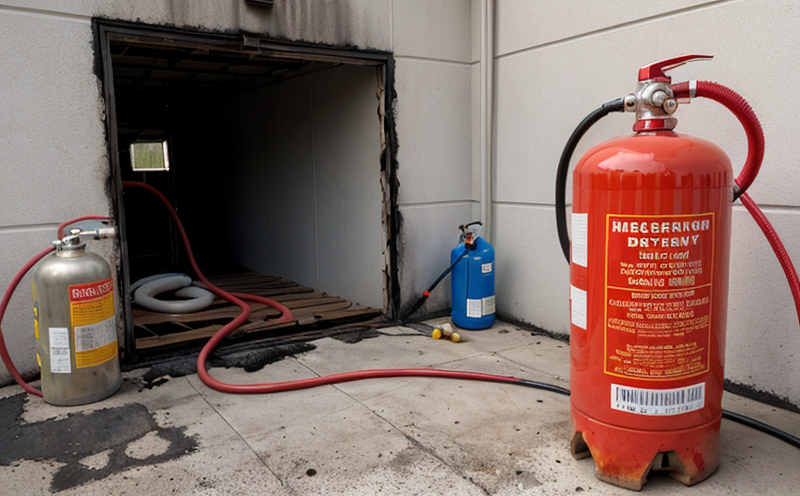Dry chemical fire extinguisher inspection
Inspecting dry chemical fire extinguishers is a critical component of any robust fire safety program. Dry chemical fire extinguishers are versatile and effective for combating Class A, B, C, and D fires, making them indispensable in various environments such as industrial facilities, commercial buildings, and educational institutions.
The primary function of dry chemical fire extinguishers is to disrupt the chain reaction of combustion. They achieve this by covering burning materials with a fine powder that serves multiple purposes: it prevents the oxidation process by acting as an insulating barrier, cools the material through heat absorption, and inhibits re-ignition by chemically altering the flame.
The inspection process is designed to ensure that these extinguishers are in optimal working condition. Inspectors check for signs of corrosion or damage on the exterior of the extinguisher, verify that the pressure gauge indicates a safe level, and confirm that the pin and handle function correctly. Additionally, they perform a visual inspection inside the container to evaluate the integrity of the powder and ensure there is no significant degradation.
For a more thorough examination, specialized equipment such as a hydrostatic test bench may be used to measure the internal pressure and structural integrity. This test ensures that the extinguisher can withstand the high-pressure discharge required during an emergency situation. The inspection also includes checking for any residual water or contamination within the extinguisher, which could affect its performance.
During inspections, it is crucial to adhere to international standards such as ISO 1985 and NFPA 10. These guidelines provide stringent criteria that must be met for the proper functioning of fire extinguishers. Compliance with these standards ensures not only regulatory adherence but also enhances overall safety levels within a facility.
Regular inspections are essential because environmental factors like temperature fluctuations, humidity, and exposure to sunlight can affect the performance of dry chemical fire extinguishers over time. By conducting periodic checks, facilities can identify potential issues early on and address them promptly before they escalate into significant problems that could compromise safety during emergencies.
- Environmental factors such as temperature fluctuations, humidity levels, and exposure to sunlight play a crucial role in maintaining the effectiveness of dry chemical fire extinguishers.
- Regular inspections help in identifying any signs of degradation or damage early on, allowing for timely maintenance or replacement of faulty units.
- Adhering to international standards like ISO 1985 and NFPA 10 ensures that the inspection process meets the highest safety and operational requirements.
- The use of specialized equipment such as a hydrostatic test bench provides an accurate assessment of the extinguisher's structural integrity and internal pressure.
In conclusion, regular inspections of dry chemical fire extinguishers are vital for ensuring that they remain effective and reliable in critical moments. By following established standards and best practices, facilities can enhance their overall safety measures significantly.
Benefits
The benefits of a comprehensive dry chemical fire extinguisher inspection extend beyond mere compliance with regulations; they contribute to enhanced safety, improved operational efficiency, and long-term cost savings for businesses. Regular inspections ensure that these life-saving devices are always in peak condition, ready to be deployed when necessary.
One major advantage is the increased confidence among employees knowing that their workplace is equipped with properly functioning fire protection equipment. This reduces stress during emergencies since personnel can rely on reliable extinguishers without worrying about potential failures. Another benefit lies in preventing costly downtime due to non-functional firefighting systems. When inspected and maintained regularly, there are fewer chances of malfunctions or breakdowns, thus minimizing disruptions caused by unexpected repairs.
Moreover, compliance with relevant standards such as ISO 1985 and NFPA 10 helps protect against legal risks associated with non-compliance. Penalties for violating fire safety regulations can be severe, so maintaining proper documentation of inspections serves both practical purposes - ensuring readiness during audits - while also safeguarding against potential liabilities.
Cost savings come into play because preventing minor issues from becoming major ones translates directly into lower maintenance costs over time. By catching problems early through routine checks rather than waiting until an emergency arises, organizations avoid the higher expenses typically involved in addressing more severe damage or replacements. Additionally, having up-to-date records of inspections allows for efficient planning and scheduling of future services, further optimizing resource utilization.
In summary, implementing a robust inspection program for dry chemical fire extinguishers leads to safer working environments, reduces operational risks, enhances compliance with industry standards, and ultimately contributes to overall business success by fostering a culture of preparedness and continuous improvement.
Eurolab Advantages
At Eurolab, we pride ourselves on delivering unparalleled expertise in dry chemical fire extinguisher inspections. Our team comprises highly qualified professionals who possess extensive experience in this field, ensuring that every inspection meets the highest standards of accuracy and reliability.
We employ advanced technology and state-of-the-art equipment to conduct thorough examinations, including high-pressure hydrostatic testing machines designed specifically for this purpose. This allows us to provide precise measurements regarding the internal pressure levels within each extinguisher, which is critical information when assessing its readiness for use during an emergency situation.
Our commitment extends beyond just meeting regulatory requirements; we strive to exceed expectations by offering customized solutions tailored to individual customer needs. Whether it's providing additional training sessions or recommending specific types of fire protection systems based on risk assessments, Eurolab is dedicated to helping clients achieve their goals effectively and efficiently.
Furthermore, our rigorous quality control processes ensure consistent results across all inspections performed by our technicians. By adhering strictly to international standards such as ISO 1985 and NFPA 10, we maintain the highest level of integrity in our work, which is reflected in our certifications and accreditations from reputable bodies around the world.
In summary, Eurolab's unwavering dedication to excellence sets us apart from other service providers. With our expertise, cutting-edge technology, and commitment to quality, we are committed to providing superior dry chemical fire extinguisher inspection services that meet or exceed industry expectations.





